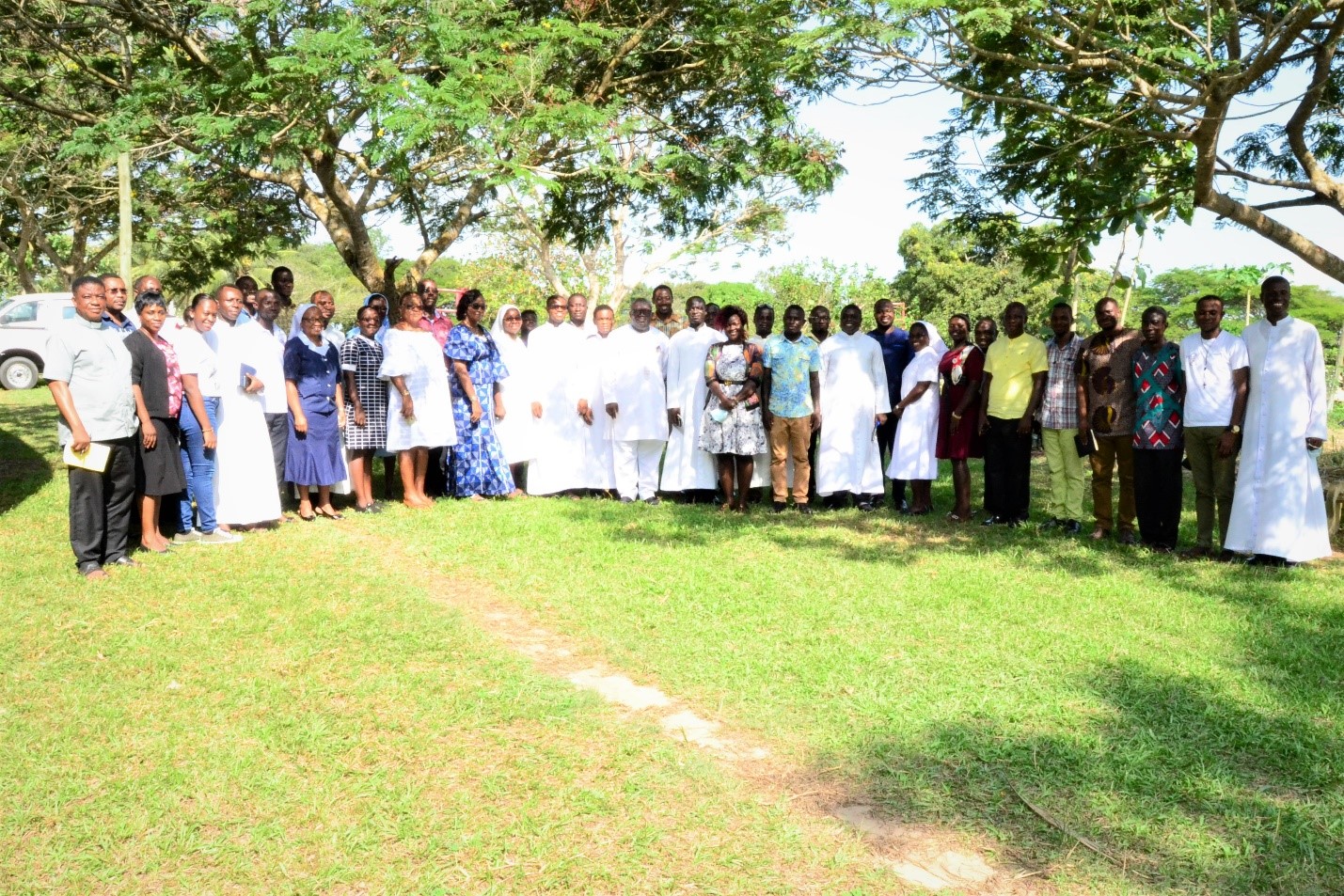
The Centre for Human Development (CEHUD), under the auspices of the Ghana Catholic Bishops’ Conference (GCBC) and with funding support from the United States Conference of Catholic Bishops organized a seminar on the use of technology in the Catholic Church in Ghana during and beyond the Covid-19 pandemic.
The seminar, which took place on Provincial bases started with the Accra Ecclesiastical Province at Ho on May 21, 2021. This was followed by the Ecclesiastical Provinces of Kumasi, Cape Coast and Tamale on June 10, 2021, June 17, 2021 and June 23, 2021 respectively. The participants were drawn from the Clergy, Religious, Laity and the Youth.
Taking participants through the one-day seminar, on the topic “Using Technology in the Church During and Beyond the Covid-19 Pandemic”,
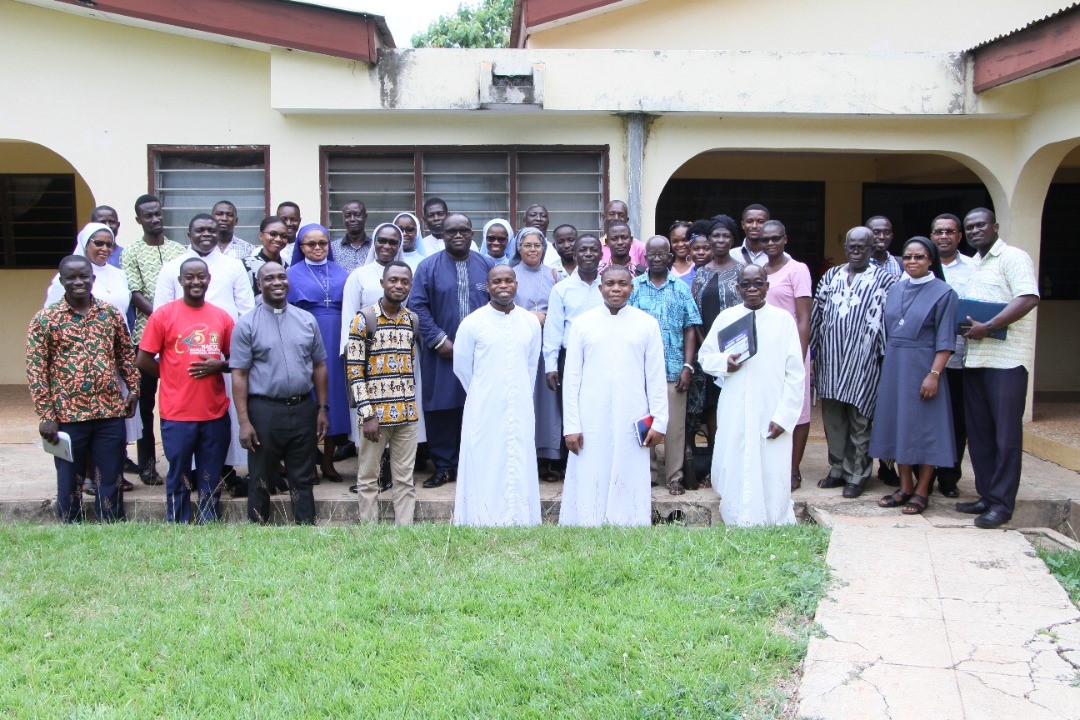
the main Facilitator, Ing. Dr. Kenneth Ashigbey, a very passionate and a practicing Catholic, urged participants to take advantage of the Covid-19 pandemic by using technology to reach people with the Word of God where ever they are. He said, “this is important because, traditionally, the Church moves to where the people are and same must be done using technology.”
He said that evangelisation must be carried out in the Church and beyond through effective use of Information Communications Technology (ICT), especially, the use of the social media platforms such as WhatsApp, YouTube, Facebook, Twitter, Instagram, Telegram etc.
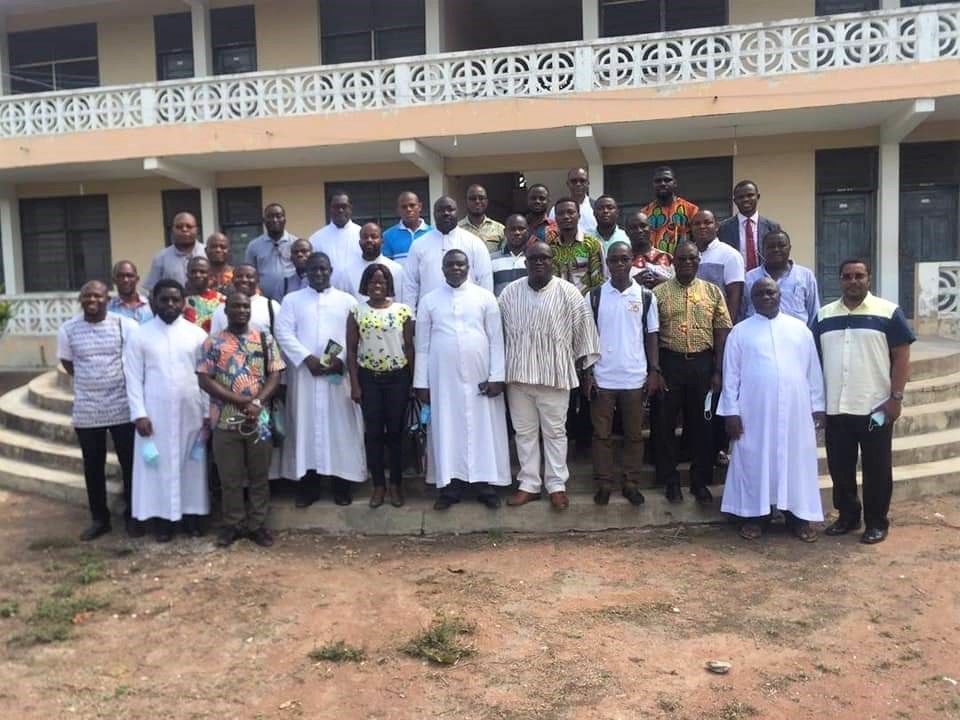
Ing. Dr. Ashigbey said that technology had entered its fourth stage of industrial revolution known as digitization. He emphasized the need for the participants to come up with plans and training programmes that would engage the youth and parishioners in the acquisition of digital technology skills for mission and for their own sustenance by creating jobs, using technology in this era of unemployment.
He also touched on the importance of digital technology in genuine data gathering by dioceses and parishes. This he said will inform the pastoral plan of the Church to make provision for people with challenges such as the deaf and dumb and the aged who can no longer attend Church. He then advised Parish Priests and Church Pastoral Councils to open mobile money accounts for parishioners to make their contributions towards the development and sustenance of their local Churches. “With the growth of technology, cash is going to die very soon” Ing. Dr. Ashigbey said.
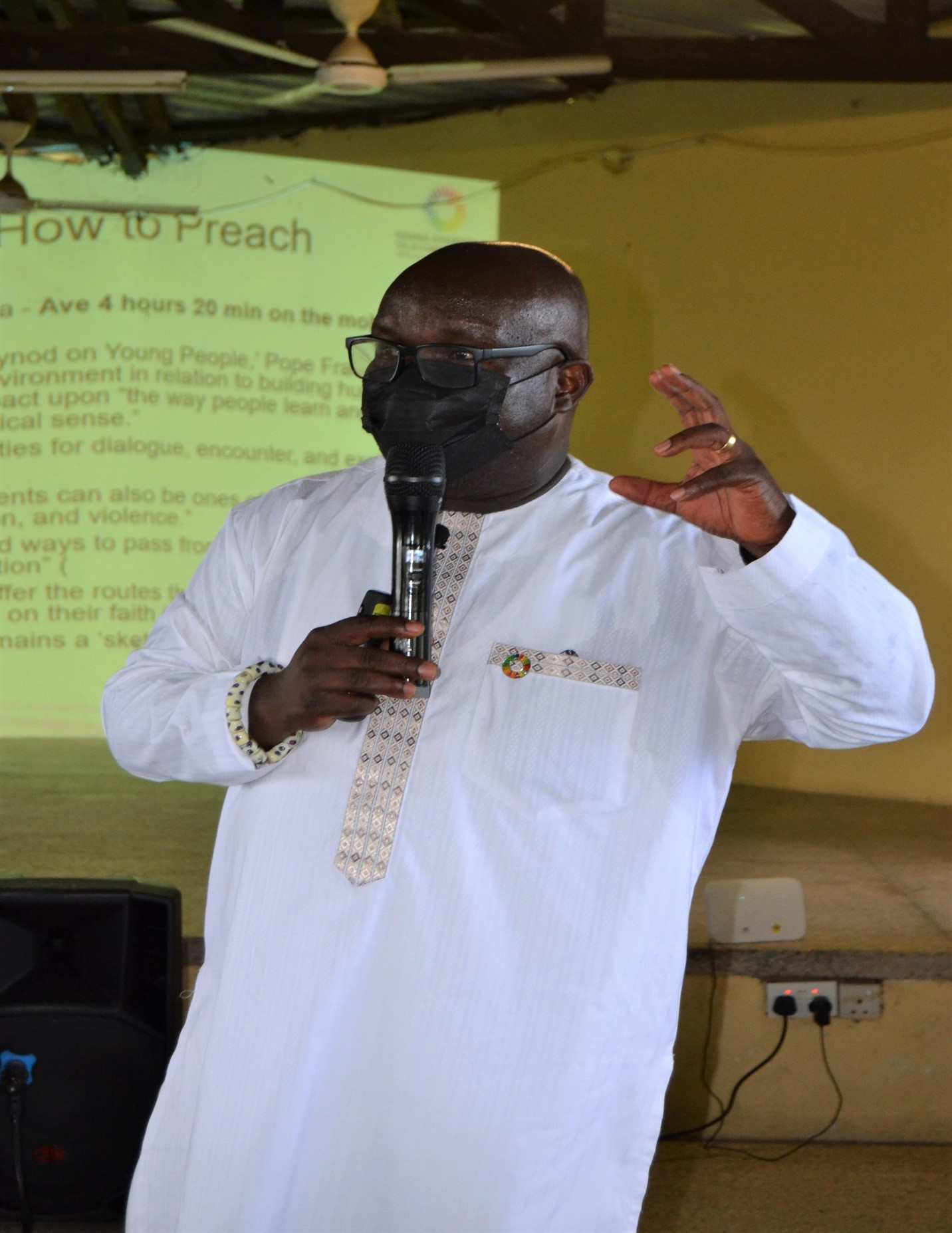
Ing. Dr. Ashigbey concluded his presentation by taking participants through some dos and don’ts with regard to the use of social media and reminded participants that their main aim of engaging people on social media should be to win them for Christ and nothing more.
Present at the one-day seminars at Tamale and Takoradi were the Metropolitan Archbishop of Tamale and President of the Ghana Catholic Bishops’ Conference, Most Rev. Philip Naameh and the Bishop Elect for Sekondi-Takoradi Diocese, Msgr. John Baptist Attakruh, who until his election was the Apostolic Administrator of the diocese.
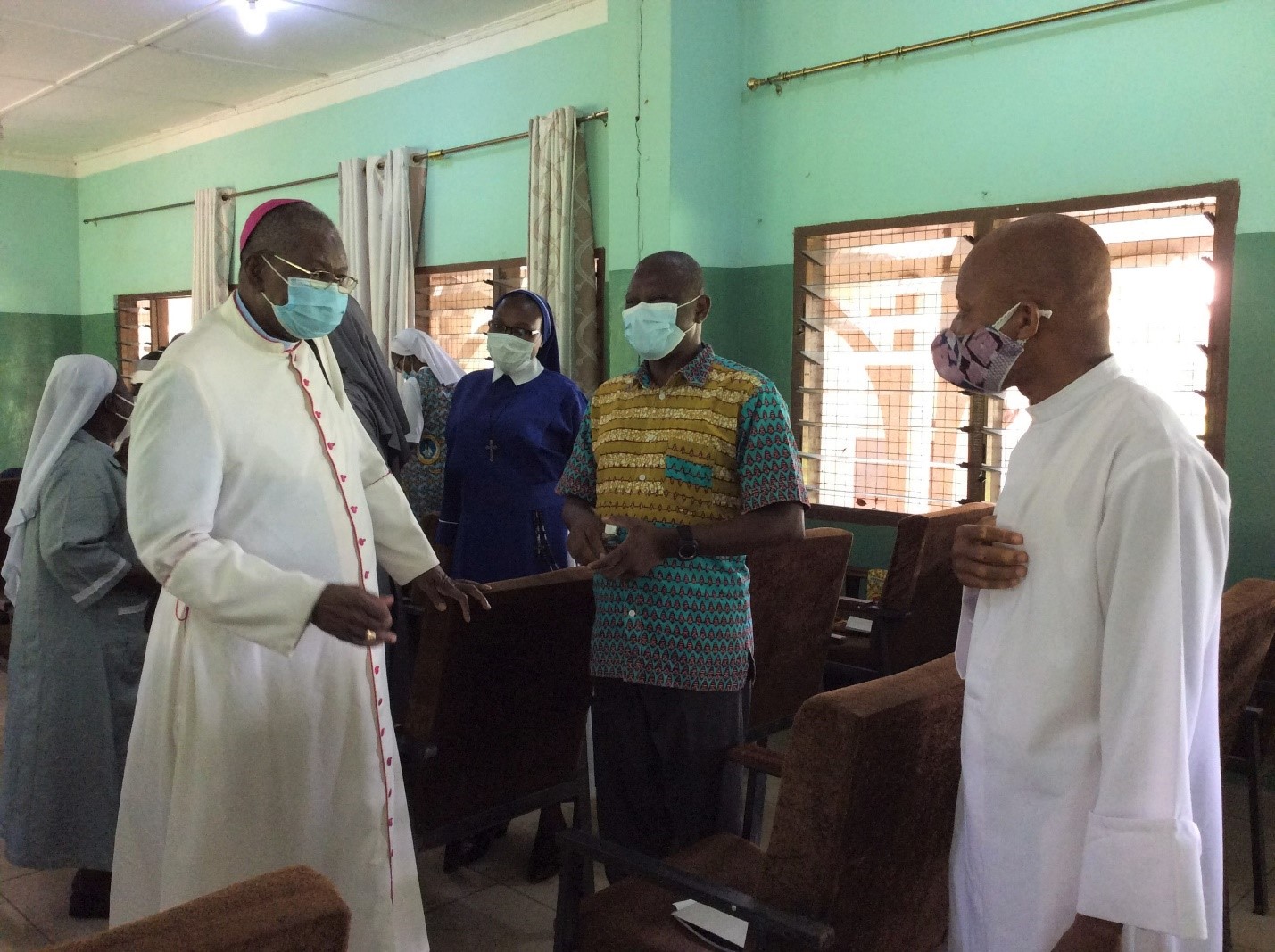
In a word of welcome, Archbishop Naameh said he saw the seminar as a very opportune moment for the Church in the Tamale Ecclesiastical Province and Ghana in general to learn how to use technology to improve her mission to evangelise. He thanked the team of facilitators for coming to help the participants learn new ways on how to use modern means of communication to do the work of evangelisation and hoped that at the end of the one-day seminar, the participants will go back to their various dioceses better equipped than they came.
In his final remarks, Archbishop Naameh appealed to his brother Bishops and all Church leaders to see the challenges brought about by the Covid-19 pandemic also, as an opportunity for the local Church to find new and modern ways of reaching out to the faithful across the country and to this effect, he advocated for all DEPSOCOM Offices to be well equipped to enable them meet the needs of the age.
In his word of welcome at the St. Kizito Pastoral Centre, Apowa, near Takoradi, Msgr. Attakruh expressed gratitude to the Bishops of the Province and to the Organisers of the Programme for bringing the Seminar to his diocese. He then urged all participants to take active interest in the seminar so as to be able to become the change-makers in their dioceses, parishes and institutions.
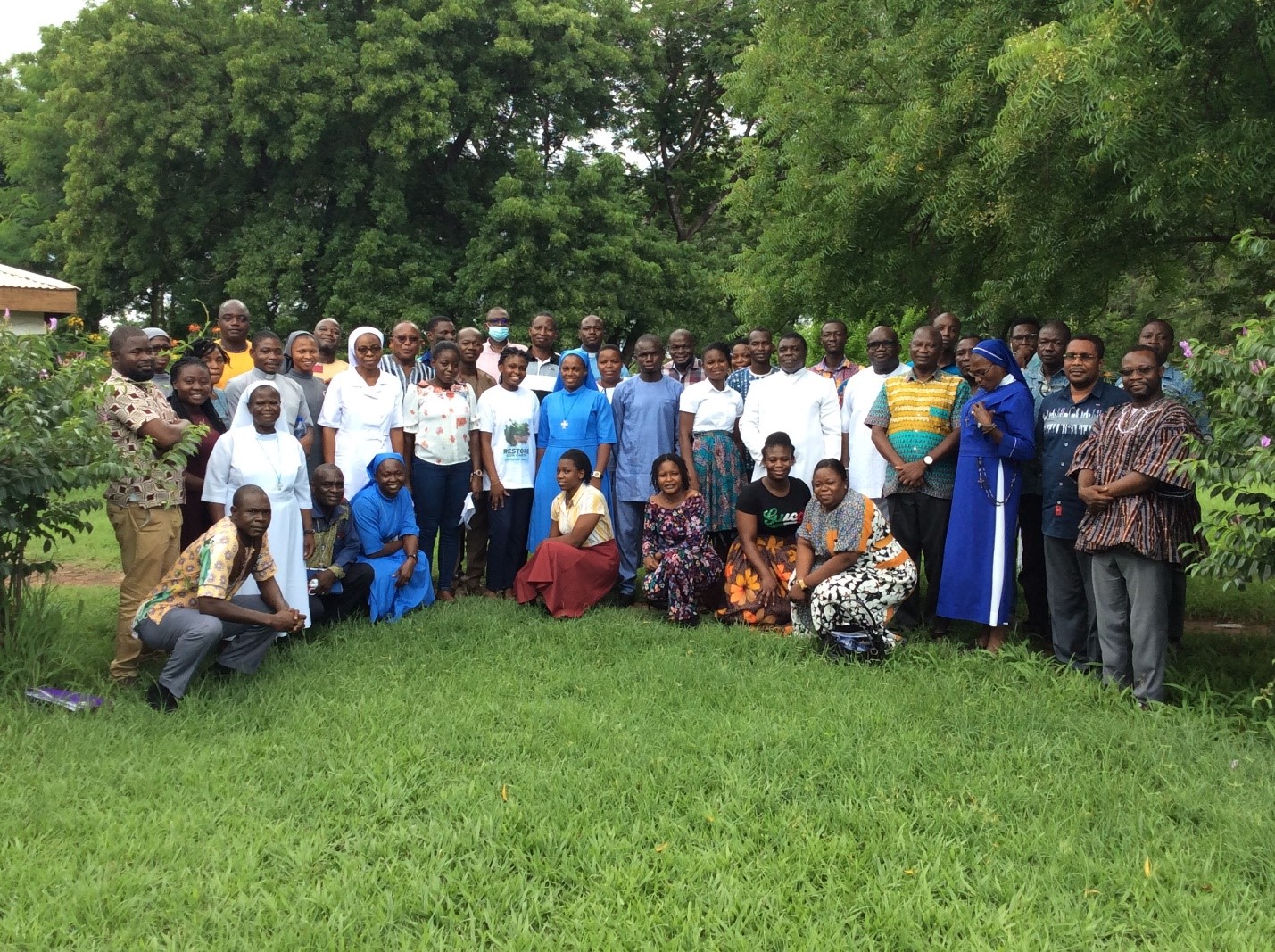
In all, about 180 participants who benefited from the various seminars expressed gratitude to the Organisers, the main Facilitator and the Donors for the opportunity to learn about how to use technology for the works of evangelisation. They pledged to draw plans as well as put together the needed human resource that will help put their various dioceses and parishes on all the available new media platforms for the work of evangelisation, with the ultimate aim of leaving nobody behind.
Giving the background to the project, the Director of CEHUD, Fr. Edwin Terence Adzimah said the project is in response to the Church’s call to mission during and beyond Covid-19 pandemic. Fr. Adzimah said “the purpose of the one-year project is to engage the clergy, religious and laity on the increasing need for collaborative ministry in the catholic dioceses of Ghana”, He added that “the mission of Christ which is the mission of the Church is thus not the business of the clergy alone. It is a co‐operative venture requiring collaboration between the clergy and the laity”.
He concluded by asserting that since the epoch described as ‘new normal’ due to the Covid-19 pandemic remains with this generation and future ones, the mission of the Church must not be limited by natural or man-made happenings. He said digital technology has been identified as a complementary and effective tool in driving mission within this context of new evangelisation in the Church today. Hence building collaborative ministry through technology can help promote the mission of Christ as the mission of the Church effectively.
BY:
CENTRE FOR HUMAN DEVELOPMENT (CEHUD)
NATIONAL CATHOLIC SECRETARIAT
ACCRA

